This is the fifth in a series of archived posts on building a sustainable Okanagan together. This one is about water. And fish. And property rights. Today we’re at Mud Lake. It’s also called Rosemond Lake. Mud Lake came first, I bet. At any rate, this is the view looking to the North shore of the lake. Mud Lake is closed to power boats. It’s pretty quiet.
Mara Lake is in behind that shore, just a few feet away.
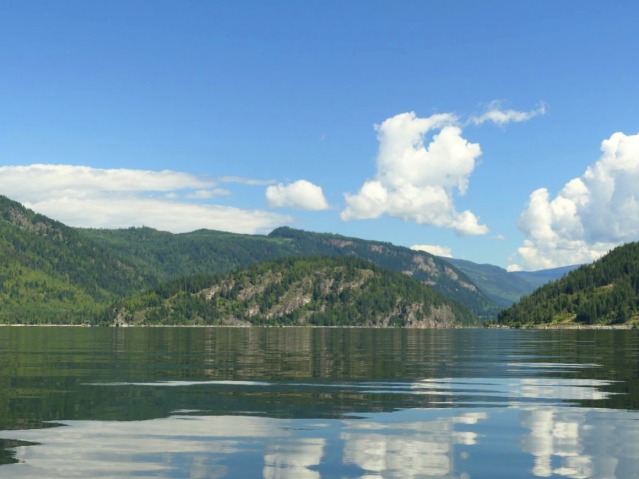
It is noisy with power boats and is pretty much fished out. Maybe we can do something about that. You see, that gravel berm is not a natural shoreline. It’s the bed for a railway that no longer runs. In fact, before there was a railway there was no Mud Lake. There was just Mara Lake, pooling in a big wetland where the Shuswap River flows in. That wetland is now Mud Lake. It is the amputated lung of Mara Lake.
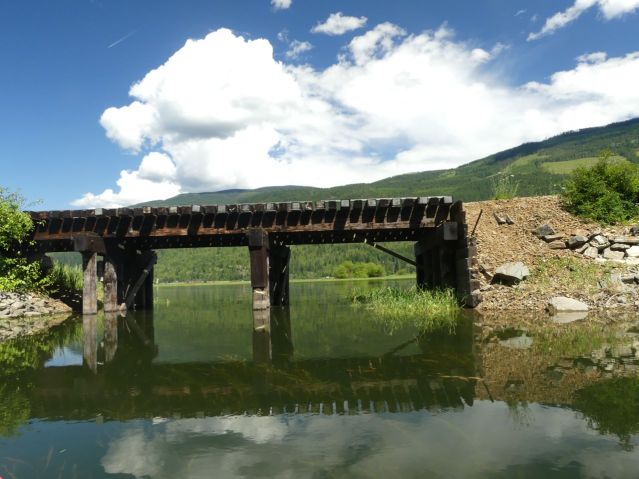
It’s connected by a narrow passage. You can go through it.
 You can come out where you should have been in the first place, and where the lake’s nutrients should flow but only kind of seep, a bit.
You can come out where you should have been in the first place, and where the lake’s nutrients should flow but only kind of seep, a bit.

The fish need to live in cold water. Mud Lake doesn’t provide it, but fish need to eat, too, and Mud Lake provides that. It just needs to be flushed into Mara. What’s more, if the Shuswap River flowed there again, its cooler water would aid fish reproduction, while the wetlands would help clean the river. At the moment, it spills its muddy runoff for a couple kilometres out into the lake. That’s bad for fish. So, look again:

Mara Lake was amputated from its lungs to build a railway, but the railway no longer runs. This is easy to fix. Here are the ripples from my kayak passing over the life-giving organs of Mud Lake.

Land and water alienated for a public purpose should not become private property when that purposes passes. This is a principle that occurs again and again throughout the Okanagan, as railroads, roads and irrigation systems are decommissioned. Mud Lake, just off the Okanagan’s northern tip, is a clear example of how much we could achieve. The privatization of water has led to one kind of investment … a kind we no longer need nor use anymore. The system of privatizing water and land solely on a first-industrial-user basis was a compromise laid onto common law by the Fraser War of 1858, when a couple dozen Englishmen stared down 40,000 armed American miners who had just slaughtered a few thousand British Columbians and were eager to kill more without an excuse not to. One of the consequences was Mud Lake. Fortunately, we no longer need corridors for transportation. The system was successful — so successful that no we have too many. What we need now are planes, for staying. We need Mara Lake to be reborn. We need the war to be over.
Categories: Ethics, History, Innovation, Nature Photography, Water

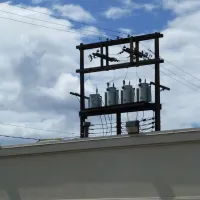
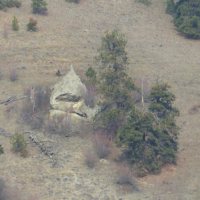

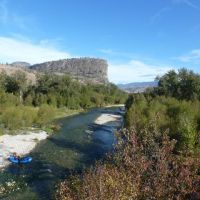
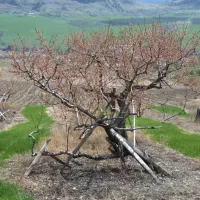

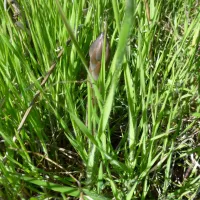





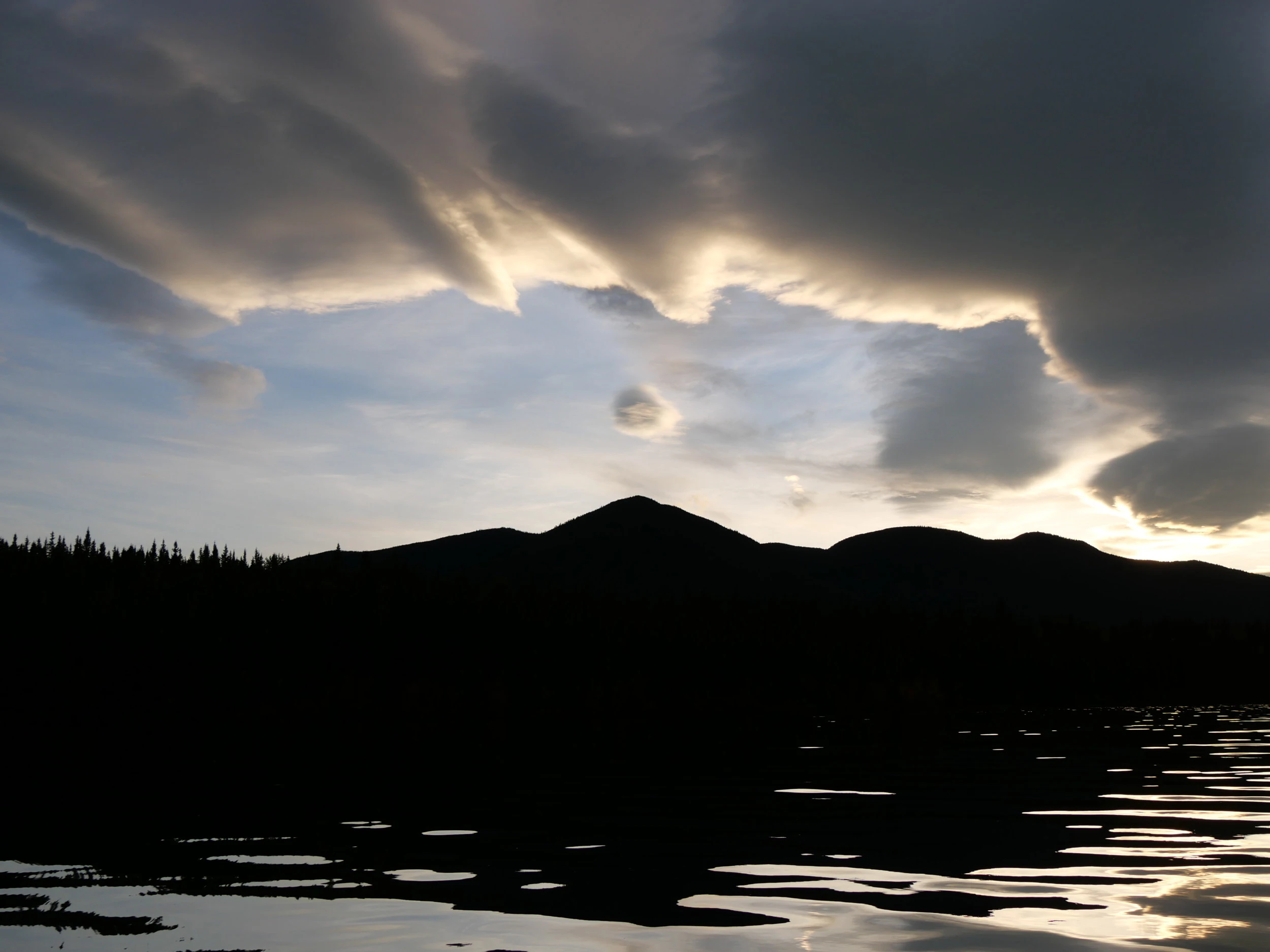
!!!!!!thanks.
Manfred Harter 250.549.1260 m2harter@yahoo.ca http://www.manfredharter.com
>
LikeLike
You’re welcome!
LikeLike
I’m familiar with both these places, Harold. Thanks for the background on how they ended up this way. Is there a movement to “decommission” the rail bed and open it up?
LikeLike
interesting….thanks for the info. I always thought from the history that no motorboats were allowed on mud lake for ecological issues. Yet it would seem that all of Mud lake is koone ecological issue. Comments?
LikeLiked by 1 person
That’s right, no motorboats on mud lake. I think it would be easy to keep motorboats out if it were made part of Mara Lake again, though. I think we have the tech for that. Best, Harold
LikeLike
I am not sure how it would be possible to keep motorboats out imud lake was part of Mara again. There would have to be a strong ecological reason. Which if Mud lake is not a natural lake….i am not sure how motorboats ever were banned in the first place. Do you know the reasoning for that? Would love to see better fish habitat.
LikeLike
No, I don’t know the reasoning behind it, but the lake is very shallow and the approach to it does dry up in the summer, leaving large mud flats. It would be a ridiculous place, with the reeds, the mud and the turtles, to come with a motorboat of any kind, especially the kind of over-sized ski pullers they have on Mara. I suspect Mud Lake would be very different if the river ran through it, or even if it was a back eddy.
LikeLike